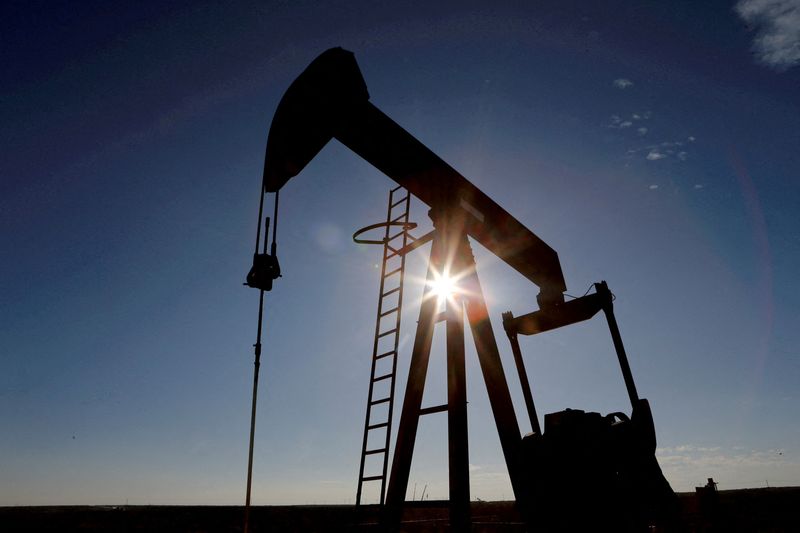By David Gaffen
NEW YORK (Reuters) -Oil prices rose on Wednesday after a larger-than-expected drawdown in U.S. inventories, shaking off worries about the likely hit to economic activity from the spread of the Omicron coronavirus variant.
Brent crude futures ended the day up $1.31, or 1.8%, to $75.29 a barrel. U.S. West Texas Intermediate (WTI) crude futures settled at $72.76 a barrel, up $1.64, or 2.3%.
U.S. inventories fell more than expected, with crude stocks down by 4.7 million barrels, though that is in part due to year-end tax considerations that encourage companies not to store crude barrels.
"We saw a drop in production, we saw inventories and crude fall, so that’s giving the market a supportive outlook," said Phil Flynn, senior analyst at Price Futures Group in Chicago. "Because supplies are below average across the board, there’s not a lot of room for error."
Coronavirus-driven mobility curbs across the globe added to fears of a drop in fuel demand. Germany, Ireland, the Netherlands and South Korea are among countries that have reimposed partial or full lockdowns or other social distancing measures in recent days.
The oil market's rally may also be buoyed in part by European utilities switching their power source to heating oil from natural gas due to record-high prices on the continent.
"What we're seeing in natural gas in Europe is going to lead to sustained switching from natgas to oil to generate power," said Andrew Lipow of Lipow Oil Associates in Houston. "That’s unanticipated demand that’s going to persist through the next several months."
It is still unclear whether the Omicron variant is more deadly than Delta, the strain which has been dominant in recent months. A study from South Africa suggested the virus was less likely to send people to the hospital than Delta as governments worldwide try to contain the rapid spread of the variant.
Moderna (NASDAQ:MRNA) Chief Executive Officer Stephane Bancel said on Tuesday that the vaccine manufacturer does not expect any problems in developing a booster shot to protect against the Omicron variant.
Pfizer (NYSE:PFE), one of the primary manufacturers of COVID-19 vaccines, said its antiviral COVID-19 pill was approved for at-home use. It targets people who have contracted the virus and is effective at reducing symptoms and hospitalizations, the company said.
Should you invest $2,000 in PFE right now?
With PFE making headlines, savvy investors are asking: Is it truly valued fairly? In a market full of overpriced darlings, identifying true value can be challenging. InvestingPro's advanced AI algorithms have analyzed PFE alongside thousands of other stocks to uncover hidden gems. These undervalued stocks, potentially including PFE, could offer substantial returns as the market corrects. In 2024 alone, our AI identified several undervalued stocks that later surged by 30 or more. Is PFE poised for similar growth? Don't miss the opportunity to find out.
Reveal Undervalued Stocks Now

